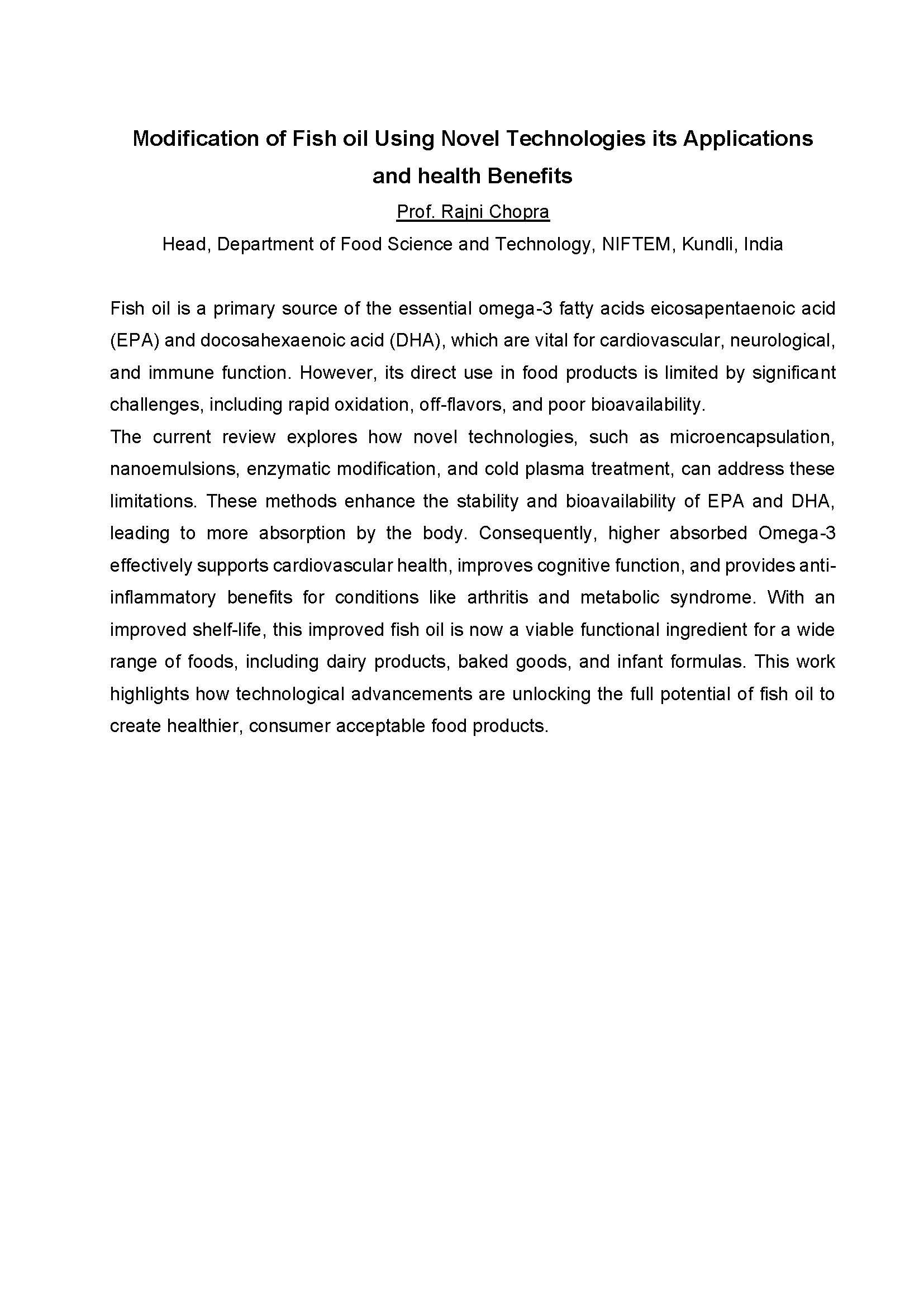Fish oil is a primary source of the essential omega-3 fatty acids eicosapentaenoic acid (EPA) and docosahexaenoic acid (DHA), which are vital for cardiovascular, neurological, and immune function. However, its direct use in food products is limited by significant challenges, including rapid oxidation, off-flavors, and poor bioavailability.
The current review explores how novel technologies, such as microencapsulation, nanoemulsions, enzymatic modification, and cold plasma treatment, can address these limitations. These methods enhance the stability and bioavailability of EPA and DHA, leading to more absorption by the body. Consequently, higher absorbed Omega-3 effectively supports cardiovascular health, improves cognitive function, and provides antiinflammatory benefits for conditions like arthritis and metabolic syndrome. With an improved shelf-life, this improved fish oil is now a viable functional ingredient for a wide range of foods, including dairy products, baked goods, and infant formulas. This work highlights how technological advancements are unlocking the full potential of fish oil to create healthier, consumer acceptable food products.
